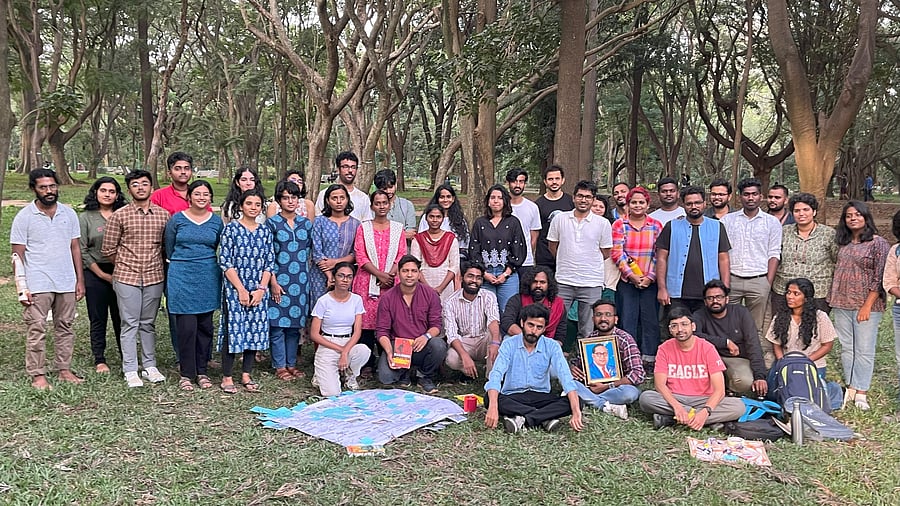
Four friends have started a collective in Bengaluru to raise awareness about the anti-caste movement.
Called ‘Ambedkar Reading Circle’, the initiative was started in April by Roy Anto, Abhijit Wagre, Vignesh Shiva Subramaniam M, and Akbar Allahbaksh. They belong to Dalit and minority communities. The group, which is in their mid-20s, met during a fellowship programme in Bengaluru.
They started the initiative as they could not find a forum to articulate their frustrations over the small acts of discrimination they faced at work or while trying to rent a place in the city. They meet every month, more offline than online, and anyone is free to participate.
Holding space
“Out of the four core members, three of us have moved to Bengaluru from different parts of the country. But despite having lived in the city for a couple of years, we didn’t feel like we were part of any community,” Roy says.
The representation of Bengaluru in mainstream media is one of the main reasons. “The Bengaluru we see in movies or on social media is from a Brahminical lens. It’s an upper-caste view and it is propagated constantly. It is not relatable,” he explains.
While Roy acknowledges there are many “progressive” community-led organisations in Bengaluru, he is quick to point out that “even in these organisations, the songs that are sung have an upper-caste bearing”.
“We were inspired by self-respect/Ambedkarite organisations in university spaces outside the city such as the Ambedkar Student Association at Hyderabad Central University. It has successfully created a sense of belonging among youngsters,” he shares.
What to expect
Since the launch of ‘Ambedkar Reading Circle’, the collective has organised five kinds of events. At Public Book Presentations, they discuss a book focusing on the anti-caste movement - ‘Annihilation of Caste’ by Dr BR Ambedkar was the talking point in the first meetup. At Public Poetry Reading, attendees can read their poems or by others and discuss their personal experiences. Cubbon Reads Babasaheb is a silent reading session where people can read the works of Ambedkar and other anti-caste writers like Siddalingaiah quietly in Cubbon Park.
Come Explore With Us is the latest format and is designed like a workshop to understand factors that have shaped the social morphology of Bengaluru.
The first such workshop was conducted on August 13 in Cubbon Park and drew a crowd of 40. Through multiple activities, participants were urged to explore their relationship with the city. “When each of them came up with a word or thing to describe the city, the many social gaps in the city became apparent. They spoke of how the importance given to Ambedkar changes from locality to locality. Many participants dwelled on how the city was segregating different communities and how the rest of the world only knows about the Brahminical side of the city. They used words like ‘isolating’, ‘casteist’, ‘expensive’ and ‘unpredictable’ (to describe their experience in the city),” he says.
People of all age groups attend these gatherings but the majority are youngsters in the age group of 20-30. “And it’s not like our event is limited to a particular community. We have people from all walks of life come over. Many are unsure or unaware of the anti-caste movement but they come with an open mind and are willing to learn,” shares Roy.
To know more about ‘Ambedkar Reading Circle’, check @arc.bangalore on Instagram.